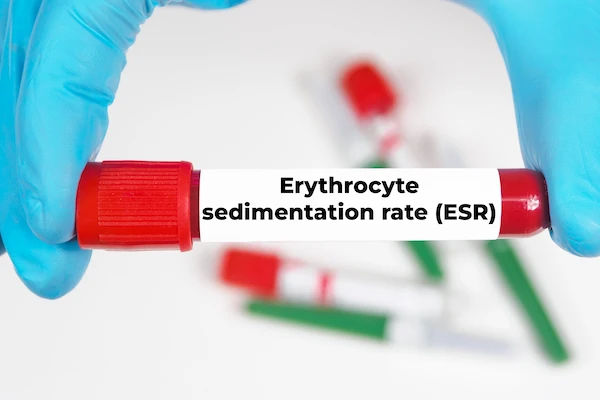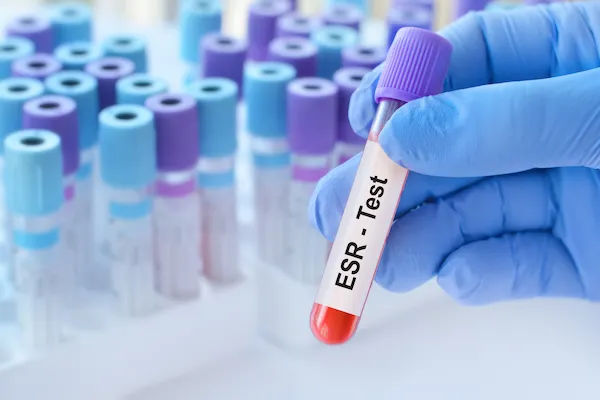Cuts Not Healing Fast? Get These Tests Done
Experiencing numb or tingling hands and feet? Learn which diagnostic tests and why, they’re crucial for uncovering causes like diabetes, B₁₂ deficiency, thyroid issues, and neuropathy.

Written by Dr. Rohinipriyanka Pondugula
Reviewed by Dr. J T Hema Pratima MBBS, Fellowship in Diabetes Mellitus
Last updated on 9th Sep, 2025
.webp?tr=q-80,f-webp,w-350,dpr-2,c-at_max 700w)
Have you noticed that a simple cut or scrape takes much longer than usual to heal? Or perhaps a minor wound seems to linger, getting worse instead of better? For many adults, especially those with diabetes or who are older, slow wound healing can be a worrying sign. It's not just an inconvenience; it can indicate underlying health issues that require attention.
Understanding Delayed Wound Healing
Normally, your body has an amazing ability to heal itself. When you get a cut, a complex process begins: blood clots, new cells grow, and the wound closes. This usually happens fairly quickly. However, when this process is slowed down or stopped, it's called delayed wound healing. This can lead to:
- Longer-lasting wounds
- Increased risk of infection
- More pain and discomfort
- Scarring
- Serious complications like deeper infections, tissue damage, or even amputation, especially in vulnerable groups.
Several factors can interfere with the body's natural healing process:
- Poor Blood Flow
- Infections
- High Blood Sugar (Diabetes)
- Weakened Immune System
- Nutritional Deficiencies
- Certain Medications
- Underlying Health Conditions
- Smoking
For diabetics and older adults, these risk factors are often more present, making them more prone to delayed wound healing. That's why understanding and addressing the cause is so important.
Important Tests to Find Out Why Your Cuts Aren't Healing
If your cuts aren't healing as they should, your doctor will ask about your health history and examine your wound. They will then likely recommend specific blood tests to check for common underlying issues that affect healing, especially those related to blood sugar control and your immune system.
Blood Sugar Tests
Diabetes is a primary culprit behind delayed wound healing. High blood sugar levels damage blood vessels, reducing blood flow to wounds. They also weaken your immune system, making it harder for your body to fight off infections in a wound. Even minor cuts can become serious problems if blood sugar is not controlled.
Why it matters: Checking your blood sugar helps find out if you have diabetes or prediabetes, or if your existing diabetes is well-controlled. Good blood sugar management is crucial for proper wound healing.
What it measures:
- Fasting Blood Sugar (FBS): This test measures your blood glucose level after you haven't eaten for at least 8-12 hours (usually overnight).
Normal: Below mg/dL (5.6 mmol/L)
Prediabetes: 100−125 mg/dL (5.6−6.9 mmol/L)
Diabetes: 126 mg/dL (7.0 mmol/L) or higher (on two separate tests). - Glycated Haemoglobin (HbA1c): This test gives you an average of your blood sugar levels over the past 2-3 months. It's a key indicator of long-term sugar control.
Normal: Below 5.7%
Prediabetes: 5.7%−6.4%
Diabetes: 6.5% or higher.
What it Means: High blood sugar levels in these tests point to diabetes or poor diabetes control, which directly impacts your body's ability to heal wounds. Managing these levels is a critical step in improving healing.
Book for Blood sugar tests now
Complete Blood Count (CBC)
A Complete Blood Count (CBC) is a common and very useful blood test that gives your doctor a lot of information about your overall health. It's especially important for checking your body's ability to fight infection and carry oxygen, both of which are vital for healing.
Why it matters: Your blood cells play a big role in healing. Red blood cells carry oxygen to the wound, white blood cells fight infection, and platelets help stop bleeding and start the healing process.
What it measures: A CBC measures:
- Red Blood Cells (RBCs) / Haemoglobin (Hb): These carry oxygen. If you have too few (anaemia), your wound might not get enough oxygen to heal properly.
- White Blood Cells (WBCs): These are your body's infection fighters. High levels can mean an active infection, while very low levels might mean a weakened immune system, making you prone to infections that delay healing.
- Platelets: These help your blood clot and are involved in the early stages of wound repair.
What it Means: Abnormalities in your CBC can point to anaemia, an ongoing infection, or problems with your immune system, all of which can severely impact how fast a cut heals.
Infection Markers (CRP and ESR)
When a wound isn't healing, infection or inflammation is often a major reason. Your body produces certain substances that can be measured in your blood to show if there's an infection or a lot of inflammation. These are called infection markers.
Why they matter: High levels of these markers suggest that your body is fighting something off, which can use up resources needed for healing or directly interfere with the process.
What they measure:
- C-Reactive Protein (CRP): This protein is made by your liver when there's inflammation or infection in your body. It's a quick indicator of how much inflammation is present.
Normal: Usually less than 1.0 mg/L.
Elevated CRP: This can mean an infection (bacterial, viral, or fungal), an inflammatory condition, or tissue injury.
- Erythrocyte Sedimentation Rate (ESR): This test measures how quickly red blood cells settle in a test tube. When there's inflammation, certain proteins cause red blood cells to clump together and settle faster.
Normal: Varies by age and sex (e.g., for men under 50, usually 0−15 mm/hr; for women under 50, 0−20 mm/hr).
Elevated ESR: Indicates inflammation in the body, which can be due to infections, autoimmune diseases, or other chronic conditions.
Book Erythrocyte Sedimentation Rate now
What it Means: High CRP or ESR levels suggest that inflammation or infection is present, which could be the reason your cuts aren't healing. These tests help your doctor decide if antibiotics or other treatments for inflammation are needed.
Other Important Tests Your Doctor Might Consider
Depending on your overall health and other symptoms, your doctor might also look into:
- Nutritional Deficiencies: Tests for levels of Vitamin C, Zinc, or protein, as these are crucial for healing.
- Kidney and Liver Function Tests: To check if these organs are working correctly, as problems can lead to toxins building up that affect healing.
- Thyroid Function Tests: An underactive thyroid can sometimes slow down metabolism and healing.
- Specific Infection Tests: If a particular type of infection is suspected in the wound, specific cultures or tests might be done. Apollo 24/7 offers various infection check-up packages.
Get These Tests To Get A Yourself Checked up
Who Should Get These Tests?
If you notice that your cuts or wounds are taking an unusually long time to heal, or if they show signs of infection (like redness, swelling, pus, or increased pain), it's always best to talk to a doctor. These tests are especially important for:
- Diabetics: Even small cuts can become serious if blood sugar is not well-managed. Regular monitoring is crucial.
- Older Adults: As the body's natural healing ability slows with age, underlying issues become more apparent.
- Anyone with a weakened immune system: This could be due to other medical conditions or medications.
- Individuals with unexplained fatigue, weight loss, or frequent infections: These could be signs of underlying conditions affecting healing.
- People with chronic wounds, Such as leg ulcers or pressure sores, often indicate a deeper problem.
Getting an early diagnosis and starting the right treatment is key to preventing serious complications from unhealed wounds.
Why Choose Apollo 24|7 for Your Tests?
When you need diagnostic tests, especially for something as important as slow wound healing, you want a service that is reliable, accurate, and easy to use. Apollo 24|7 offers all of this and more. They make it simple to get tested with home sample collection for many blood tests, which is very helpful for older people or those who find it hard to visit a lab. As part of the trusted Apollo Hospitals group, they ensure high-quality, accurate results using advanced lab equipment. They provide a wide range of tests and comprehensive health packages, including those focused on diabetes management and infection checks, helping you get a complete picture of your well-being. You can expect quick reports, often within hours, allowing for faster discussions with your doctor and quicker treatment if needed. Their expert team processes and interprets your results, and their easy-to-use website and mobile app make booking tests and accessing your reports simple and hassle-free.
Conclusion
When cuts aren't healing fast, it's a clear signal from your body that something might be wrong. For diabetics and older adults, this symptom is particularly important to address. Blood tests like Fasting Blood Sugar (FBS), HbA1c, Complete Blood Count (CBC), and infection markers like CRP and ESR are essential tools to help your doctor find out why your body's healing process is delayed. By taking proactive steps and getting these recommended tests through trusted providers like Apollo 24/7, you gain valuable insights into your health. Early diagnosis and proper treatment can significantly improve your healing, prevent serious infections, and help you maintain your overall health and quality of life. Prioritising these investigations is a vital step towards ensuring your body can heal as it should.





.webp)